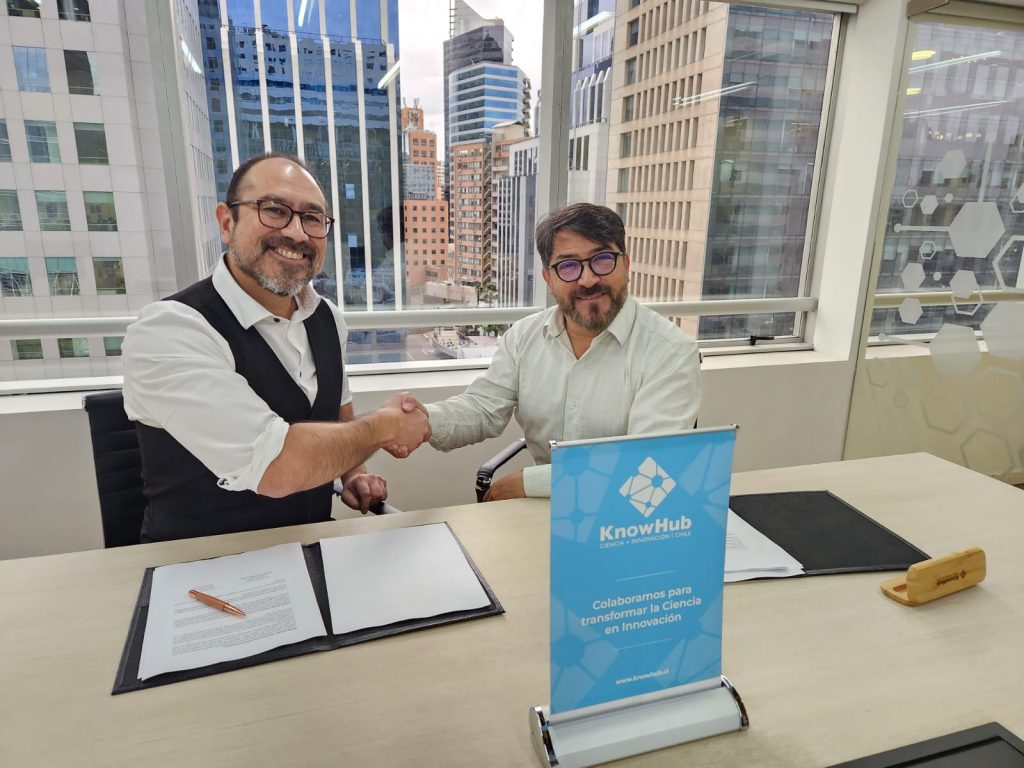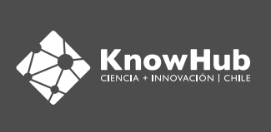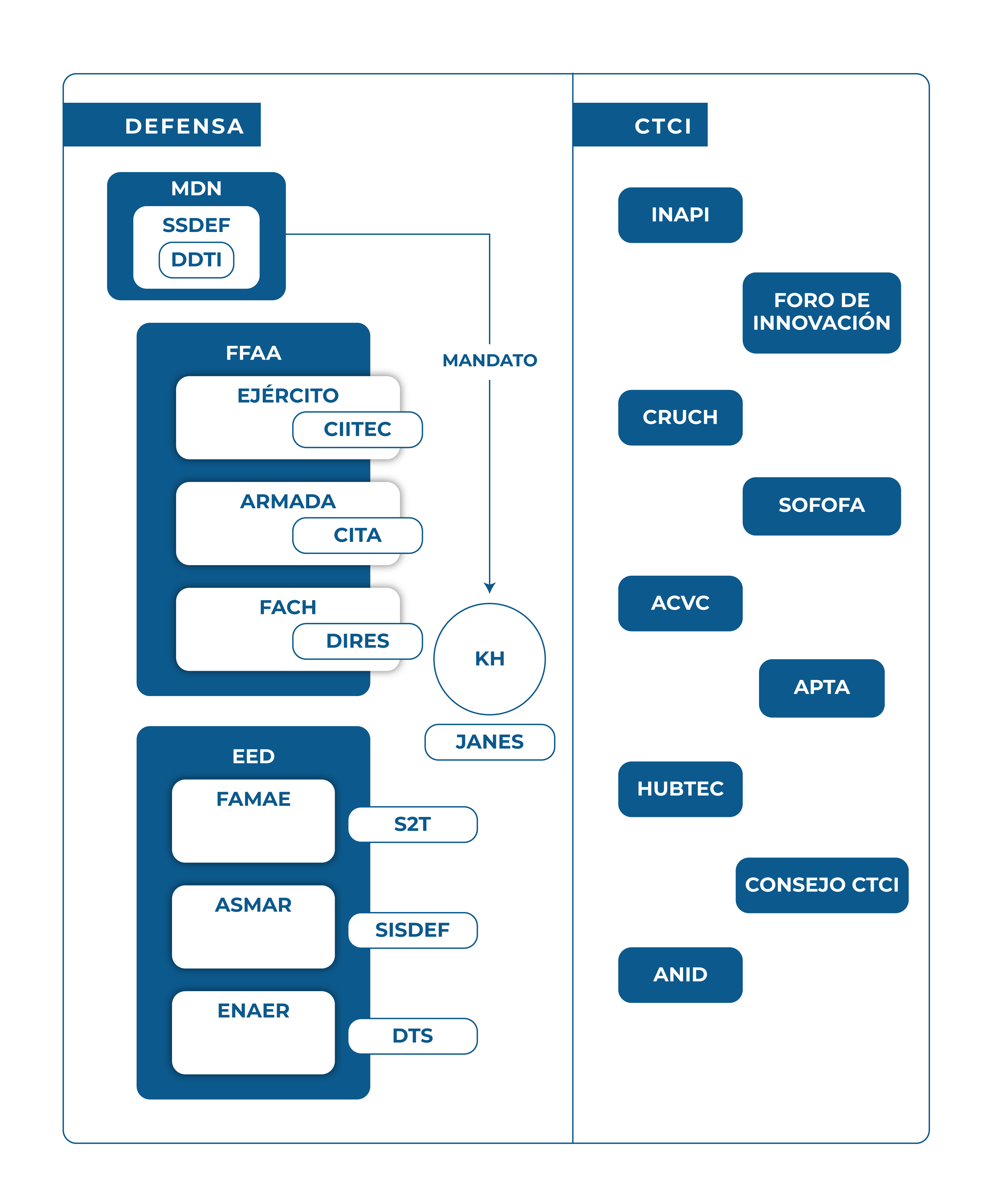The licensed technology, which controls superficial scalds in apples and pears, offers a unique and 100% natural solution to extend the shelf life of fruit and reduce losses throughout the value chain. Born at the Universidad de Talca, it is a successful case of technology transfer that contributes to the national and international fresh fruit industry.
A good-looking fruit will be a fruit that the end buyer will take home. However, in the process of commercializing products for international markets, products are subject to risks that affect their appearance and can lead to them being rejected, despite their good quality and flavor.
After a prolonged period of storage at low temperatures, a frequent physiological alteration occurs in apples and pears, known as superficial scald, which results in irregular brown spots only on the surface. Since it is a type of chilling injury, symptoms appear when the fruit is at room temperature, during shelf-life. Although it is an effect that does not derive from pathogens or mechanical damage, and does not compromise the pulp of the fruit, they are usually discarded, so the economic losses can be considerable.
Chile exported 602,478 tons of apples (2022), equivalent to USD 518.4 million, according to the Office of Agricultural Studies and Policies, Odepa. Considering that apples alone are the third most exported fruit in Chile, finding an effective solution has been a continuous challenge for the industry.
Natural Alternative
A research team from the Universidad de Talca, led by Carolina Torres, Ph.D. in Agricultural Engineering and currently an academic at Washington State University, USA, developed a 100% natural anti-scald alternative that will replace synthetic anti-scald agents currently used by the industry worldwide. This highly effective patented formula to prevent superficial scald during prolonged storage of fruit contains vegetable-derived squalane and has been validated on a semi-industrial scale in Chile and the United States on both pears and apples.
This technology is applied post-harvest and before the cold storage to which pears and apples are subjected worldwide, explained Dr. Torres, “preventing a very devastating physiological disorder called superficial scald, whose symptoms are the blackening of the skin, which generates a cosmetic damage that makes the fruit unmarketable.” A breakthrough that is part of the Know Hub Chile technology portfolio and was recently licensed to a U.S.-based startup, Pomona Hort Innovation, to help it expand into the international market.
Developed by the Universidad de Talca, Know Hub Chile’s partner institution, it responds to an unmet demand for natural products that replace traditional synthetic chemicals that have a very high environmental cost, says Ricardo Diaz, CEO of Pomona Hort Innovation: “This product is 100% natural, and its active ingredient is upcycled from the olive oil production process, making it a modern and environmentally friendly alternative for the control of superficial scald in pears and apples.”
The startup that took inspiration for its name from Pomona, the Roman goddess of fruit and orchards, is on a mission to help bring together academia and the fruit industry. “Our goal is to facilitate collaboration, knowledge transfer, and innovation between these three domains. We bring together world-class researchers, knowledge transfer institutions, and industry leaders to leverage academic expertise and cutting-edge research to generate practical applications for the benefit of the fruit industry,” said Díaz.
The need to help technologies created by research institutions to reach the market is growing, says the CEO of Pomona Hort Innovation. “New technologies are generally created by universities, and, in most cases, they are not mature enough to attract the interest of large companies,” he explains, adding that many academics do not have an entrepreneurial spirit because they are “very busy with their work as professors, so many of these inventions remain in limbo between the results of a research project and what is required to be a product that is mature and attractive enough to reach the market.”
Therefore, to commercialize this technology, Know Hub Chile managed its licensing. “Thanks to it, Pomona Hort Innovation will be able to commercialize and produce the technology in the United States and other countries where it is needed,” explains Óscar Astudillo, Innovation Coordinator at Know Hub Chile.
Agribusiness Solution
The commercialization opportunities are auspicious, says Astudillo, given that the technology, which has several patents, has already been tested and evaluated in relevant environments, such as Chile and the United States, with positive results in terms of its efficiency and effectiveness against superficial scald.
“It is one of the few products of natural origin that will provide a solution to the industry. The chemicals currently in use could soon generate commercial problems, as they are highly questioned and the continuity of the registration for their use in export markets is in jeopardy. This technological alternative comes at a time of production and post-harvest of pears and apples when it is in high demand. It is a great opportunity to put the product on the market over the next two years,” explains the Innovation Coordinator of Know Hub Chile.
For his part, the CEO of Pomona Hort Innovation emphasizes that it is important for them “to be the strategic ally of Know Hub in the United States for EBCTs. The key one, since it is one of the most important markets for agro-industrial technologies and will allow direct access to the technologies that are developed in Chile.”




